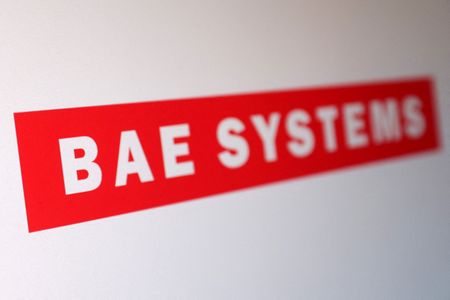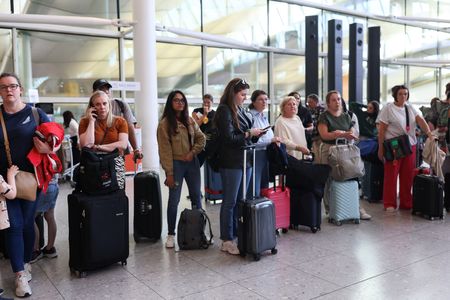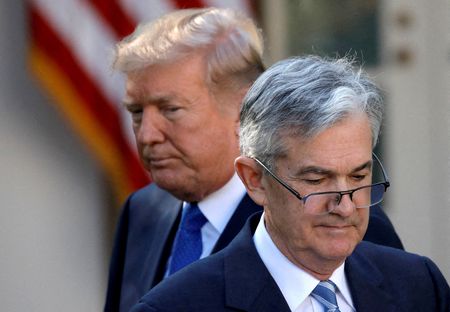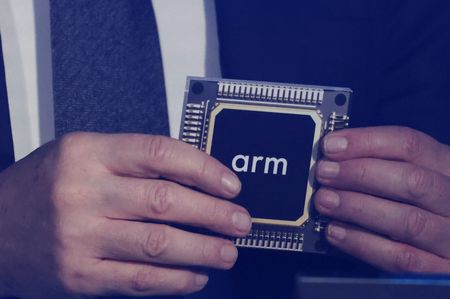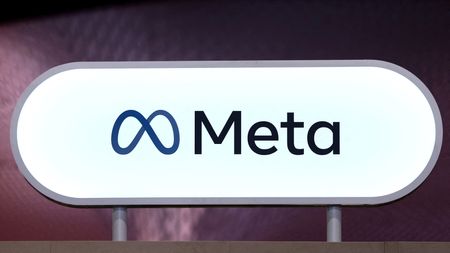By Sarah Young
LONDON (Reuters) -Britain’s BAE Systems upgraded its annual earnings forecast after strong first-half results, as it continues to benefit from the heightened global threat environment which is driving countries to spend more on defence.
BAE’s order book has been ticking up since Russia invaded Ukraine in 2022. This year, U.S. President Donald Trump’s call for European countries to become more self-sufficient in defence prompted most NATO countries to pledge to hike military budgets.
BAE, which makes combat vehicles, submarines, drones and other kit, said on Wednesday it expected its annual underlying earnings (EBIT) to rise 9% to 11% on last year’s result, higher than the 8% to 10% growth it had previously forecast.
That came after earnings jumped 13% in the first six months of the year to 1.55 billion pounds ($2.07 billion), beating a consensus forecast of 1.52 billion pounds.
The result was boosted by a contract win in the U.S. for a space-based missile tracking capability, which could lead to further work as the country develops its Golden Dome defence shield, as well as progress made on the GCAP project to develop a new fighter jet with Italy and Japan.
Shares in BAE traded down 2% in early deals. The stock is up 60% so far this year, outperforming Britain’s bluechip index which is 10% higher.
“Strength was expected,” Bernstein analysts said.
BAE, whose biggest markets are the U.S., Britain and Saudi Arabia, said it was well-placed to win more work from across Europe as well as the Middle East.
The company is set to receive a new order for Eurofighter Typhoon military jets after an agreement between Turkey and Britain was signed earlier in July. Orders from Saudi Arabia and Qatar could also be on the cards.
“There’s definitely interest,” CEO Charles Woodburn told reporters. “But it’s hard to put a timeframe on when those potential next buys might come through.”
He declined to comment on whether BAE was in talks with Boeing and Sweden’s Saab about teaming up on a future replacement for Britain’s Hawk trainer jet.
($1 = 0.7492 pounds)
(Reporting by Sarah Young; editing by William James, Paul Sandle and Louise Heavens)

